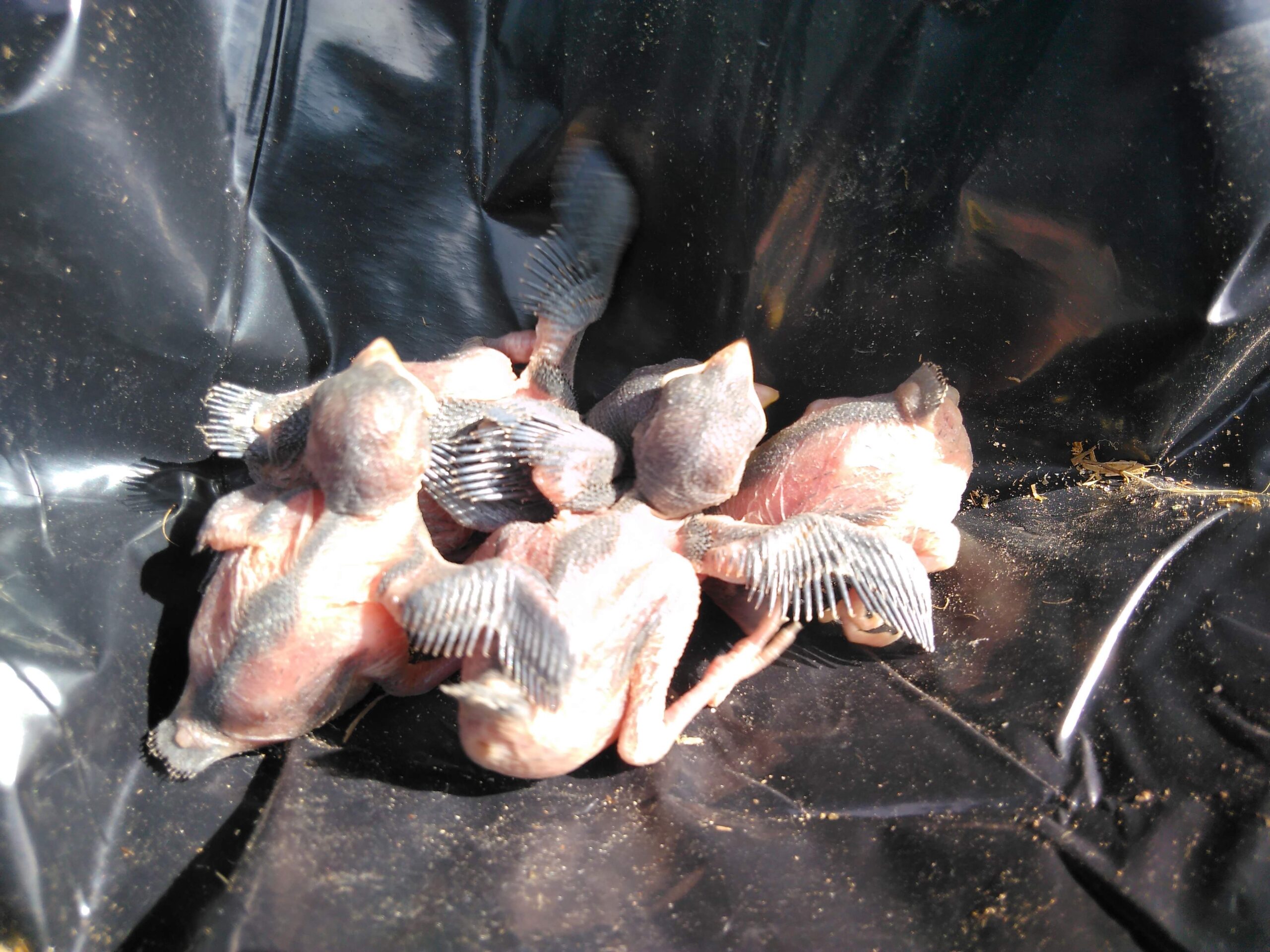The sound of baby birds chirping in your yard is a welcome sign that spring is near. The sound of baby birds chirping in your home can feel less exciting. Find out why having birds roost in your home can be dangerous, how to discourage them from doing so and why Skedaddle Humane Wildlife Control is your best choice for professional bird removal in Madison.
Why Prevent Birds in Your Home
Birds look for a place to roost that’s warm, safe and secure enough for a nest. For resourceful species of birds, this includes a surprising number of locations around your home. Here are some of the most common places where a bird may begin building a nest in your home:
- Attic eaves
- Chimney
- Soffits
- Shutters
- Behind siding
- In dryer vents
As they build a nest and prepare to raise their young, birds can be destructive. Bird chirps may be welcomed or frustrating, depending on the bird and your feelings about them, but other aspects are obviously damaging. Birds scratch their way behind your siding or in your attic. Once there, corrosive bird droppings can damage materials, such as bricks, shingles, drywall and wood.
Droppings also affect your air quality and can spread diseases. Histoplasmosis, salmonella and other diseases are all risk factors when you’re exposed to bird droppings or contaminated items. Even after a bird has left, you may still be at risk if it has left behind droppings or a nest.
How To Discourage Baby Bird Tenants
Spread the word that your house is closed for bird visitors. Find out how to discourage birds from setting up a home and raising young ones in your building. Keep your home safe and free from unwanted feathered visitors.
First, it’s important to remember to never attempt to handle birds on your own. If you already have a bird in your chimney, attic or dryer vent, it’s best to turn straight to a local wildlife professional. Attempting to remove a nest or block a bird that’s already set up a nest in your home could increase your risk of exposure to an illness. It could also harm the bird and any baby birds present.
There are a few tools you can use to discourage birds that haven’t moved in yet. Use netting or wire covers to block your eaves and dryer vents. Be sure you use products that are approved for wildlife intrusion, otherwise, you may capture and injure a bird instead of preventing it from entering in the first place.
Maintaining your chimney and siding prevents birds from finding roosting spots in these areas of your home. Typically, birds find a loose piece of siding or a hole in the material that can be turned into a nest. Birds will rarely find a roosting spot in new or fully maintained siding.
Noisemakers or fake predator products are common items purchased to prevent birds from creating a nest. While these products may have some success, birds can also get used to them and simply ignore them after some time. Consider trying one to see how it works, but don’t rely on these products in place of proven, professional wildlife control.
Where To Turn for Bird Removal in Madison
Don’t let bird roommates get you down. While a bird’s nest in your home should be handled quickly and treated seriously, you’re not alone in the task. Don’t attempt to remove baby birds on your own, but contact us at Skedaddle Humane Wildlife Control to request an inspection. We’ll assess your home, the presence of any birds and offer a humane way to transfer the nest without harming the bird or its young.



